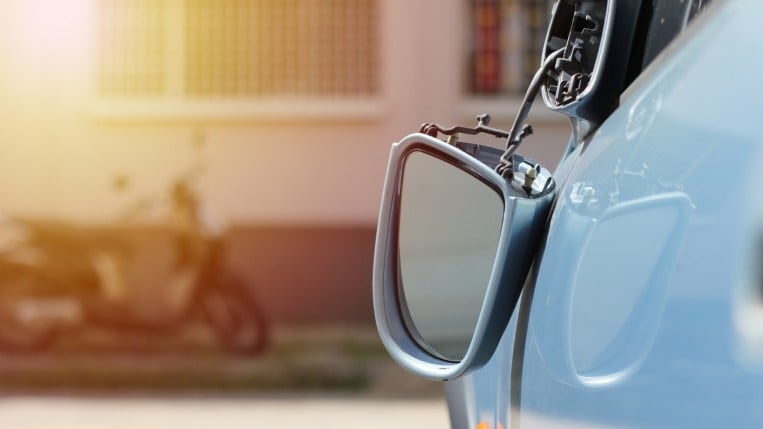Is it Worth Having Car Insurance? | Kelley Blue Book

Car insurance may not be the most exciting way to spend your hard-earned money. But if you’re wondering whether it’s worth having, consider this: Without it, you might have to pay for vehicle repairs and medical expenses from accidents, theft, vandalism, and other misadventures.
But if you have insurance, the insurer covers the cost up to the policy limit.
What is Car Insurance?
Car insurance is an agreement between you and the insurance company. It limits your out-of-pocket expenses if you’re in a crash, your car is stolen, or another covered event damages your vehicle.
What Does it Cover?
In general, there are five main types of auto insurance coverage a standard policy may include, but you don’t have to buy them all.
Depending on the types of coverage you choose, your plan may pay for injuries and damage you cause to someone else, lost wages, and funeral expenses. Car insurance can also help cover damage to your vehicle and injuries you and your passengers sustain.
You can include add-ons such as GAP insurance, towing and auto maintenance and repair labor, windshield and other glass coverage, rental reimbursement, and more for additional protection.
RELATED STORIES: What is GAP Insurance: Everything You Need to Know
Do You Need It?
Every state, except Virginia and New Hampshire, requires licensed drivers to have auto insurance. If you drive without coverage in Virginia, you must pay an uninsured motorist fee of $500. And if you opt out of purchasing insurance in New Hampshire, you have to be able to show that you can cover your financial responsibility if you’re at fault in an accident.
How Much Insurance Do You Need?
The types and amount of coverage you need vary by state and may include:
- Liability. Almost all states require drivers to maintain liability coverage. It pays the bills for injuries and vehicle damage you cause to someone else.
- Uninsured and Underinsured motorist. Some states require this type of coverage, and others don’t. But if yours does, it protects you if you’re hit by an uninsured driver or someone who doesn’t have enough coverage to pay for the damage and injuries they cause.
- Personal injury protection and medical payments. Some states require drivers to maintain coverage that helps cover their accident-related medical bills.
Collision and comprehensive coverage are typically optional no matter where you live. But if you have an auto loan that isn’t paid off yet or you lease your vehicle, your lender will probably require them.
Collision covers damage to your vehicle if you’re in a crash. And comprehensive covers theft and damage from covered events other than accidents, such as hail.
Why You Need Auto Insurance
You need car insurance to comply with the law in most states. If you drive without insurance in a state that requires it, you may have to pay a fine. And your license and registration could be suspended.
You might also need it if you’re leasing a car or have an auto loan to protect the lender’s investment in your vehicle.
Plus, you can’t always count on other people to do the right thing. Maintaining the right types of coverage can help protect you from others who don’t have insurance or don’t have adequate coverage.
Having insurance can help protect you from suffering a significant financial setback. Without it, you could be on the hook for expensive repair costs and medical bills.
What Car Insurance do You Need?
At a minimum, you need to meet your state’s requirements. Check with your state to determine what types of coverage you need and what limits you have to maintain. But don’t rely only on your state’s legal requirements to make your coverage choices.
The state minimum often isn’t enough to cover damage and injuries if you’re in a serious accident. So, you may want to consider choosing policy limits above the required minimum.
And states don’t typically require certain types of coverage that can provide valuable protection, such as collision and comprehensive. But if you skip it, you’ll be responsible for paying for vehicle repairs if your car is damaged.
How to Save on Insurance
Getting car insurance quotes can cause sticker shock. According to Savvy, the average annual rate for auto insurance from January to May 2021 was $2,160. The good news is there are lots of ways to save on the coverage you need.
- Shop around. Premiums vary from insurer to insurer, so be sure to get multiple quotes before purchasing a policy. Shopping around could save you hundreds of dollars a year.
- Increase your deductible. In general, higher deductibles result in lower rates. Just make sure you can afford to pay your deductible if you’re in an accident.
- Lower your policy limits. Lowering your policy limits will also reduce your premium. But lower limits may not be adequate to cover damages if you’re in a serious accident. So, it’s important to weigh the pros and cons of maintaining lower limits to get lower rates.
- Drive safely. Drivers with a clean driving record typically qualify for lower rates than drivers with a less-than-stellar driving history. According to Savvy, some insurers may raise your rates from 4% to 6% after a single accident.
- Stick with a single insurer. Purchasing multiple policies from the same insurer may qualify you for a discount.
- Pay your bills on time. Some states allow insurance companies to use credit-based insurance scores to help set rates. Drivers with higher scores generally qualify for lower rates.
RELATED STORIES: 7 Biggest Car Insurance Discounts for 2021
You may need to do your homework to find a policy that provides the coverage you need at a price you can afford. But when you have adequate coverage, it can give you peace of mind knowing you’re protected from a financial loss.
Learn about KBB’s Car Deals of the Month

0 Commentaires